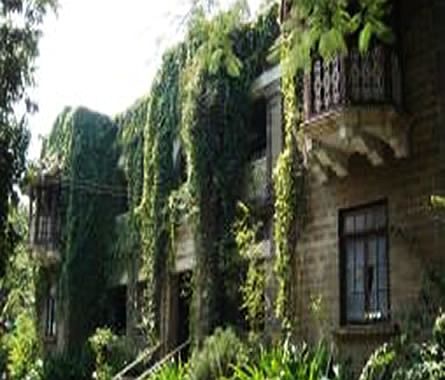A new series where we ask our instructors about their early lives, career development and proudest accomplishments. This interview features Francesca Harlow, Professor in Social and Economic History of Early Modern India.

Quick Facts:
- Formerly Laurence W. Preston, publications being under this name
- The Devs of Cincvad; a lineage and the state in Maharashtra. Cambridge University Press, 1989.
- ASIA 100; I’ve been working on developing a truly comparative but introductory history of early India and China using translations of primary sources.
- Professor Harlow became a permanent faculty member in 1994.
Can you explain to a non-expert what you research?
I’m interested in the interactions of Indians and the British during imperial conquest and pacification, generally from the mid-eighteen to mid-nineteenth centuries. I am especially concerned with how these interactions affect, and are affected by Indian social institutions such as family and kinship structures. In this context I am also concerned with ideas of place and space as they affect Indian social institutions. Another quite separate interest is in the historical geography of Hindu folk and/or regional deities.
How and why did you start your journey in Asian Studies?
I took a course in Buddhism from the late Professor Shotaro Iida here at UBC, which caused to change my major fr
om Fine Arts to Religious Studies. (My poor late father thought I was going from bad to worse for a ‘practical’ career.) Thereafter, upon graduation I received a Commonwealth Scholarship to India for two years to study archaeology and Sanskrit at Deccan College, Pune. After that my course was set.


Bhandarkar Oriental was my home while doing doctoral research and in other visits to Pune.


Deccan College Post Graduate Institute in Pune, which is a city in the Indian state of Maharashtra. This is the student hostel where Harlow stayed for two years.
What was the experience for you learning a second language?
I started Sanskrit at UBC under Professor Aklujkar, which gave me a fairly good foundation. Thereafter, in India, I more or less ‘jumped in the deep end’, and just started reading major
texts with the help of my tutor, the late Professor V.W. Paranjpe, and with a lot of slogging through grammars and dictionaries. I am no ‘language genius’ by any means. Language is just an essential tool for a historian; it just must be learned. My reading ability in Sanskrit is pretty moderate, pretty mechanical in some ways, but serviceable. When I did my Ph.D. at the University of Toronto, Department of History, it turned out that the wonderful and unexplored sources that my supervisor, Professor Narendra Wagle, turned me on to are in Marathi. While my background in Sanskrit helped somewhat, as did a very limited speaking ability. Marathi became, much to my surprise, another slog, learning grammar etc. Oddly, I’m better at reading eighteenth century revenue documents in Marathi than reading the daily newspaper. But that’s the way historians work.
Was there a point in your journey you struggled or questioned yourself? What happened?
In some ways, nearly every moment of the Ph.D. Apart from the pain of writing a dissertation, the uncertainty of employment pressed upon me at a time when I had a young family. I even took a two term course at UBC in primary level education as I was finishing writing the dissertation. I got the professional certificate, of which I am excessively proud! When I was writing my dissertation I had fantasies of throwing all my notes and drafts off the Lions Gate Bridge in a show of nihilistic resistance to academia. Didn’t have the courage.
Is there a project that you are most proud of?
I don’t think of things in this way. I’m most proud of what I actually am able to complete.


Harlow in 1972 at the Deccan College, Pune. Photo with friend, roommate and tutor in Thai, Somrit Mongkolsombat.
In class we study about events that shape Asia. Have you witnessed any such event firsthand?
Well, the full range of Indian politics and controversies from 1971 to the present. Very soon after I first arrived in India in 1971, the Indo-Pakistan Bangladesh war broke out. I learned how to sing the Indian national anthem with my fellow Deccan College students as we were called to patriotic assemblies around the flag pole. Later on I saw the paranoia and effects of Mrs. Gandhi’s ‘Emergency’. Later I lifted a drink or two in a Goan bar as we mourned the assassination of Rajiv Gandhi. etc. etc.
What change do you hope your work can make in the world?
To leave it a tiny fraction better perhaps? To inspire a few people with my love of India. I’ve had a bit of success in this I’m told. To make a nice home for my newly acquired rescue cat Bud. Not easy; he’s a badass!


